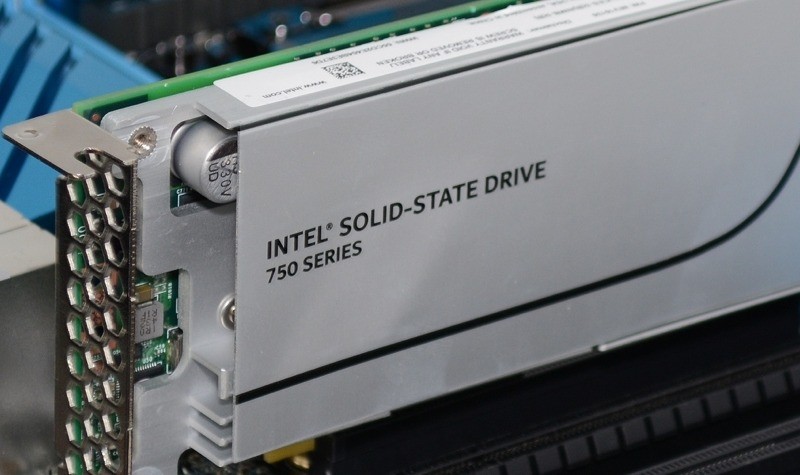Since we heard that Intel 'August Ridge' SSDs would ship in PCIe form, with speeds exceeding 1000MB/s, we've been eagerly waiting for their return to the enthusiast desktop market. The company is now ready to deliver on the promise with its first PCI Express Gen3 x4 solid state drive, officially known as the Intel SSD 750 Series.
Designed for enthusiasts and workstations, the key feature of Intel's SSD 750 Series is its adoption of Non-Volatile Memory Express or NVMe, a new performance controller interface set to replace the aging AHCI standard. Being more than a decade old, AHCI was designed for hard drives and is therefore optimized for high latency rotating disks rather than low latency non-volatile storage. NVMe on the other hand, brings things like multiple queues, higher queue depths and lower latency with a direct path from the storage to the CPU.
Intel says its PCI Express Gen3 x4 SSDs are rated to deliver sequential read performance of up to 2.4GB/s with sequential writes hitting 1.2GB/s while we can expect latency of less than 20us for sequential access.
